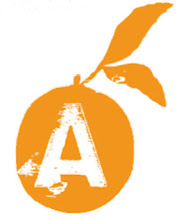
Spencer Dew
Having, in an earlier poem, denied belief in the moon, this book soon after paints an image of a “bank executive / drunk on absinthe / thrashing his / F2M transsexual paramour…for acknowledging his / receding hairline.” So surely no moonlight shines down on this brutal, lonely, ultimately pathetic scene.
Sernotti’s is a world of senseless violence and violent lusts, of incest and porn, of drinking piss on a dare or passing out after one too many attempts to insulate the vulnerable self from reality writ large. “We run on empty stomachs in cardboard shoes,” one poetic voice declares.
Mixed in with nightmare images of peeling faces and toilets overflowing with fresh shit, Glenn Danzig and John Updike exist as ciphers in a world spun off axis, broken. Videos of decapitation play out their grisly one-act joke, while worldly men, no longer young, talk about what they’ve done, recently, with high school girls.
At times, these pieces seem like so much braggadocio, drunken mumblings about strippers and shaved scrotums, perverse retellings of fairy tale with the whiff of French onion soup. But, as with that bank executive beating the lover he cannot name, there’s something strikingly tragic just under the surface here.
“We were drunk, / we were high, / we were walking the dog,” and anything that happens after is unable to make anything more of those conditions. There is no transcendence is orgasm, just another little ending, a measure of lost time. Blow jobs become exercises in futility, even metaphors for mortality, no matter what sort of swagger the individual poetic narrator may take in the retelling.
“I die in my dreams,” one poem says, yet dreams lie dead here, too, crushed under the weight of all the accumulated grit. “We are ashes trying to be flowers,” runs another line, but the sense one gets from Forked Tongue is that this metamorphosis is not to be–rather, the poetry here contemplates these ashes, sifting through them for bits of broken teeth and globs of silver fillings. “We cry into our empty glasses. / We tell jokes about graveyards, / ovens, money, dead babies.”
Whatever wonder moonlight may have once provided for the romantic imagination, it’s been excised here. Forked Tongue narrates the hangover that comes after.
 Check out Frank Hinton read
Check out Frank Hinton read 